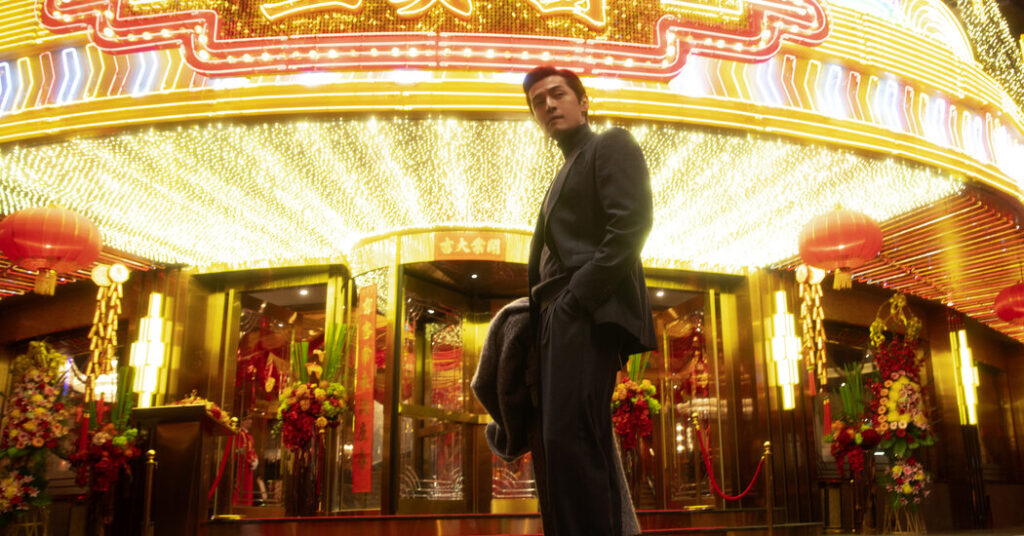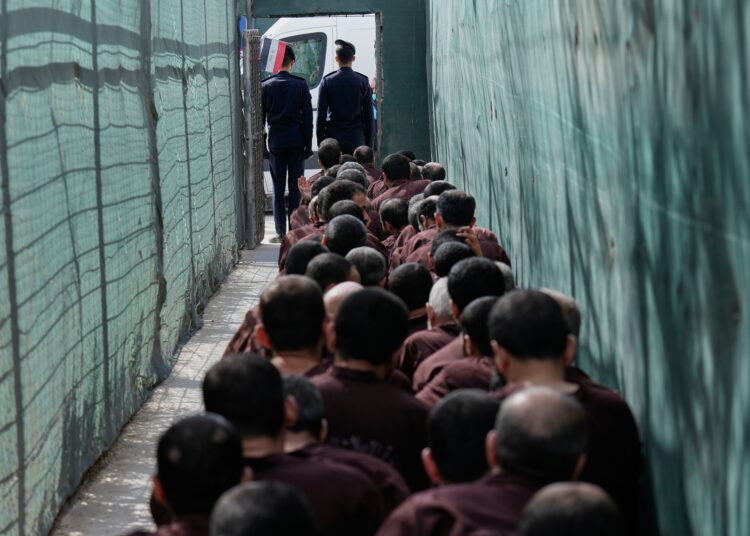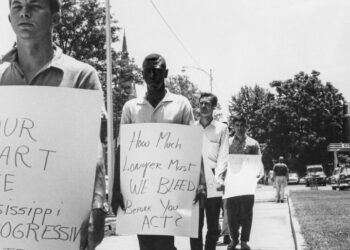Wong Kar-wai’s “In the Mood for Love,” with its silences and stillnesses and utter stylization, seems longer in the memory than it actually is. It’s a surprise to return to Wong’s most famous film, released in 2000, and realize that it’s over in a relatively brisk 99 minutes.
You might think of that, wistfully, while watching “Blossoms Shanghai,” Wong’s 30-episode, 23-hour-plus television series, which was released in China in 2023 and had its American premiere this week on the Criterion Channel streaming service. (Criterion is releasing three episodes a week; 12 were available for review.) Maybe highly art-directed nostalgia is better in smaller doses, or maybe this was just the wrong project. In either case, the bloom goes off “Blossoms” pretty quickly.
The series is set in Shanghai in the late 1980s and early ’90s as the Chinese economy is opening up and the Shanghai Stock Exchange is re-established after a 40-year hiatus. Grainy footage, archival or carefully fabricated, provides evocative glimpses of the Huangpu River, the Bund and the shopping street Nanjing Lu in the days just before Shanghai’s breakneck modernization.
But the story takes place almost entirely on the elaborate, beautifully appointed sets Wong and his visual director, Peter Pau, built for the series. And within that artificial world, it is as if the entire early history of the Chinese economic miracle took place on one corner of Shanghai’s Huanghe Road restaurant strip, where the characters spend much of their time plotting and preparing an endless round of meals.
In his first work for TV, Wong is as meticulous a stylist and pictorialist as ever. A woman’s ocher blouse matches the flowers on the table next to her and both harmonize with the tablecloth, the paneling of the dining room, the coat slung over her shoulder and the beer in a glass. Fetishistic attention is paid to the Art Deco facades along the Bund, the vintage brick-size portable phones and the slowly gliding needle of an old elevator’s analog floor indicator.
The costumes, by Shirley Chan, are not spectacular in the manner of Maggie Cheung’s qipaos in “In the Mood for Love,” but they are lovely and rigorously thought out, color- and fabric-coded to the characters. An entertaining early scene shows the Gatsby-like protagonist, Ah Bao (Hu Ge), being fitted for a new wardrobe under the cool gaze of his mentor, Uncle Ye (You Benchang), who has an exhaustive knowledge of British tailoring even though his own style runs toward well-cut Mao tunics.
These familiar touches are contained within a production that will not look so familiar to Wong’s acolytes, however. While the influence of movie history, from Hong Kong action to Western art house, has always been prevalent in his work, “Blossoms Shanghai” goes in a new direction. With its big sets, its masses of moving people, its rapid-fire dialogue, it resembles nothing so much as an MGM backstage musical from the 1930s or ’40s.
That resemblance is borne out in the story. Huanghe Road is the neon-swamped thoroughfare where a team of strivers — a garment factory owner, a fishmonger, a government bureaucrat, several restaurant “madames” — come together to put on a show; every so often a character reminds us that business, and the rivalries and romances it inspires, are a form of theater. The characters risk everything they have, and everything their family and friends have, for the big score. Ah Bao is at the center (the Broadway producer role), his moods and movements tracked by everyone, forever headed to disaster until we see the sly plan he had all along.
It’s “Broadway Melody” on Huanghe in 1993, but without songs, and not just in a literal sense. Perhaps because Wong isn’t that interested in the mechanics of the plot; perhaps because the screenplay, credited to the Chinese TV writer Qin Wen, is convoluted and monotonous; or perhaps because, based on these first 12 episodes, 30 is simply too many, the series doesn’t have the emotional highs, the sentimental payoffs, that this sort of story should.
Wong is in the world of conventional melodrama here rather than the rarefied, allusive landscape of his films, and his touch is off. He gets the look he’s going for, but he isn’t able to maintain anything distinctive in terms of mood or tone; if the series has a tone, it’s a shiny, commercial blandness. The ruthlessness and passion of the milieu it dramatizes (its credited source is a novel, “Blossoms,” by Jin Yucheng) are paid lip service, but they don’t come through the screen. The crises — a threat of counterfeit merchandise, the mass defection of a kitchen’s staff — are disconnected vignettes that come and go on schedule, one feeling the same as the next.
Despite the technique Wong lavished on “In the Mood for Love,” the thing that gave it its power was the one thing he couldn’t really control: the chemistry of Maggie Cheung and Tony Leung Chiu-wai as the pining lovers. The atmosphere of longing and regret was in their faces, and everything else about the film simply reinforced what they expressed.
No one in “Blossoms Shanghai” exerts a similar power, though the stock characterizations and the steady flow of (as translated) unexceptional and repetitive dialogue would be daunting for anyone. Hu is a suave and suitably attractive screen presence, but Ah Bao is a cipher, at least in the early going. You, who was 90 when the series premiered, is very charming as the diminutive, Yoda-like Uncle Ye. Among the women playing the rivals for Ah Bao’s lukewarm affection, none will win any awards for underacting; Ma Yili, as the outspoken and money-hungry restaurateur Ling Zi, is the most engaging of the group.
Wong’s true fans — and they are everywhere, as evidenced by the canonization of “In the Mood for Love” (No. 5 in the Sight and Sound Greatest Films of All Time critics poll, No. 4 in The New York Times’s Best Movies of the 21st Century film-industry poll) — may find plenty to like in “Blossoms Shanghai.” It is visually enveloping, if not in a notably rich or interesting way. It is healthily obsessed with the folkways of food — not just meals as a conduit for nostalgia but also as a tool of persuasion and intimidation. (And its portrayal of Shanghai, Wong’s birthplace, and use of Shanghainese as its principal language will be rewarding for those who can appreciate them.) If that’s enough to make you love the show, vive la différence.
Finally, it would be a shame to mention the series without paying tribute to Criterion Channel, whose continuing existence feels like a small miracle. The most remarkable curated repository of films on the internet, the service has carried notable TV series (“Carlos,” “Tanner ’88”) but nothing as buzzy as “Blossoms Shanghai.” Any attention, not to mention subscription dollars, that the show brings with it will be a boon for the culture.
Mike Hale is a television critic for The Times. He also writes about online video, film and media.
The post ‘Blossoms Shanghai’ Review: In the Mood for Commerce appeared first on New York Times.




